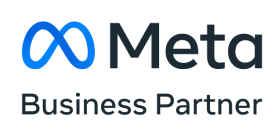Introduction
In the ever-evolving world of SEO, one element that often gets overlooked is the power of outbound links. While much attention is given to backlinks, keyword optimization, and content quality, outbound links play a critical role in enhancing your website's credibility and SEO performance. But what are outbound links, and how can they be effectively used to boost your site’s ranking? This blog dives deep into the significance of outbound links and how GoMediaDesign can help you leverage them for better SEO results.
What Are Outbound Links?
Outbound links, also known as external links, are hyperlinks that direct users from your website to another site. These links serve as a bridge, connecting your content to other relevant information on the web. By providing outbound links to authoritative and relevant sites, you not only enhance your content’s value but also signal to search engines that your website is a credible source of information.
Why Outbound Links Matter for SEO?
Building Credibility: Outbound links to high-authority sites show that your content is well-researched and connected to other reputable sources. This association boosts your website’s credibility in the eyes of both users and search engines.
Enhancing User Experience: Outbound links can enhance the user experience by directing readers to additional resources or complementary content. This keeps users engaged and can lead to longer session durations, which is a positive signal to search engines.
Boosting Relevance: Search engines like Google use complex algorithms to determine the relevance of a webpage. Outbound links to high-quality, relevant content help to reinforce the topic of your page, improving its chances of ranking higher in search results.
Encouraging Backlinks: When you link out to other websites, there’s a chance they might notice and link back to your site. This can help you build valuable backlinks, which are crucial for SEO.
Best Practices for Using Outbound Links
To maximize the benefits of outbound links, follow these best practices:
Link to Relevant, High-Authority Sites: Make sure the sites you link to are relevant to your content and have a high domain authority. This ensures that you’re providing value to your readers and positively impacting your SEO.
Use Descriptive Anchor Text: The anchor text you use for your outbound links should be descriptive and relevant to the content it’s linking to. This helps search engines understand the context of the link.
Don’t Overdo It: While outbound links are beneficial, too many of them can be distracting and may dilute your content. Aim for a balanced approach by linking out where it adds value, without overwhelming the reader.
Regularly Update Links: Ensure that your outbound links are always pointing to live, relevant content. Broken links can harm your website’s credibility and user experience, so regular link maintenance is crucial.
How Gomediadesign Can Help?
At GoMediaDesign, we understand the intricate balance of effective SEO. Our team of experts can help you craft a content strategy that includes smart use of outbound links, ensuring that your website remains a trusted and authoritative source in your industry. We offer services that range from content creation to comprehensive SEO audits, all designed to improve your site’s search engine performance.
Conclusion:
Outbound links might seem like a small part of SEO, but when used correctly, they can significantly impact your website’s credibility, user experience, and search rankings. By linking out to relevant, authoritative content, you not only enhance the value of your own site but also contribute to a more connected and informative web.
Contact Gomediadesign today!
Ready to optimize your SEO strategy? Let us help you harness the power of outbound links and more.




